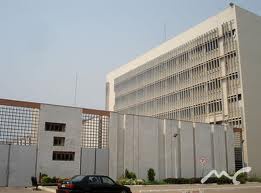Commercial banks must improve their risk management and strengthen their capital base to profit from the huge potential that exists in trade finance in the country, Dr. Abdul-Nashiru Issahaku, Second Deputy Governor of the Bank of Ghana, has said.
A recent study by the African Development Bank (ADB) indicates that the total value of trade finance requests received in 2011 by commercial banks responding to a survey amounted to approximately US$4.6trillion. Of this, more than US$1.6trillion was rejected, suggesting a global trade finance deficit of US$1.6trillion.
It is estimated that between 80-90 percent of global trade depends on some sort of trade finance. However, poorly-developed banking sectors or perceived country credit risk, continue to act as blockages.
Trade finance is a nagging problem in the country due to the risk aversion of some commercial banks. Dr. Issahaku believes that it’s down to “the risk involved in trade finance”.
“Under the current context of global finance, it is [risky]. We have come to a scenario where, relatively, the risks here are better than other countries in the sub-region. But from the global standpoint, there are certain risks our banks have to be concerned with,” he said.
Dr. Issahaku was speaking to the B&FT on the sidelines of a four-day seminar organised in Accra by the Ghana International Bank (GHIB) to share best practices and discuss contemporary issues in international trade finance.
He indicated that at the height of the global crisis, banks had to stop financing to reassess the risk associated with their counterparties. “We are encouraging banks to improve on their risk management and to strengthen their capital base so they can also provide trade finance,” he said.
Dr. Issahaku believes that banks should deploy part of their banking resources to support businesses engaged in international trade.
“I think we can also progress economically if we diversify some of our banking resources to supporting businesses that are in international trade -- both in supporting export and also for them to import capital equipment to support production locally.
“It’s an area that we at the Central Bank are interested in supporting the banks to be stronger in, so they are enabled to provide trade finance that is targetted at promoting the export of our commodities,” he said.
“They have to improve on their risk management systems. Once they do that and they are comfortable, they will be able to finance this sector because they can make huge returns in financing trade rather than selling some other products they are dealing in.”
Mr. Mark Arthur, a Senior Manager of the Ghana International Bank (GHIB), said: “I think banks may be averse for different reasons. One of the things is being able to assess the risks involved in international trade in such a way that banks can understand and manage the risks.”
It is estimated that Africa accounts for only about three percent of global trade. This has limited the continent’s ability to take full advantage of new opportunities offered by the changing global economic landscape.
Business News of Tuesday, 1 October 2013
Source: B&FT
BoG guides banks to trade financing

















